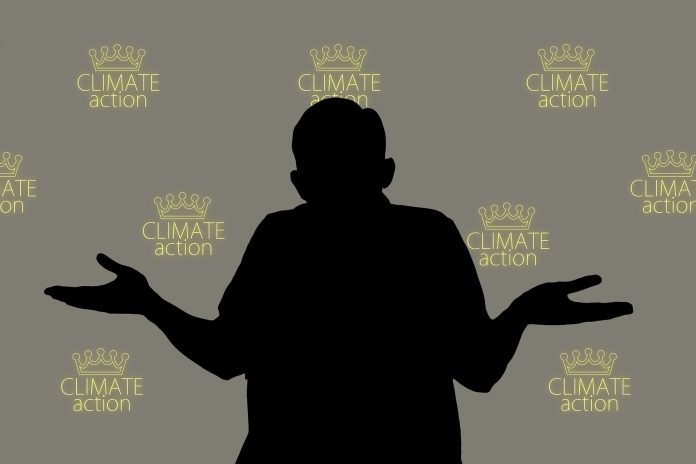A recent poll, reported on by The Guardian, found that, although Europeans were concerned about climate change and thought governments should work together to fight it, the majority of those polled were unenthusiastic about any proposal that called on them to personally change their present lifestyles. The impression the poll leaves seems to be that respondents wanted to fight climate change if it doesn’t call for too much personal sacrifice. This is consistent with similar polling done in the United States, which shows Americans are concerned about climate change, but not enough to make big changes or pay much more in direct taxes or energy costs.
The Guardian piece, “Many Europeans want climate action – but less so if it changes their lifestyle, shows poll,” describes the results of a YouGov poll which surveyed between 1,000 and 2,000 people in Denmark, France, Germany, Italy, Spain, Sweden, and the U.K. A majority of Europeans surveyed in each country were either “very” or “fairly” worried about climate change, and believed that it is caused by human activities. Most Europeans were willing to support non-lifestyle threatening activities like tree planting, or small sacrifices like avoiding single-use plastics, but enthusiasm waned when YouGov asked respondents about changes they would be willing to make to their own lives to fight climate change.
“The more a measure would change their lifestyle, the less they support it,” reported The Guardian.
Strangely, The Guardian said “there was fairly solid support” among countries for limiting meat or dairy intake to two or three meals per week, but, in truth a majority of those surveyed in each country rejected even that change, with the highest support for that life choice coming from Italy at only 43 percent. That may represent a little wishful thinking on the alarmist end, but the poll results get worse for climate alarmists from there.
The poll found that government subsidies for energy efficiency were popular, but when individuals had to cover the costs themselves, support plummeted to 19 percent in Germany to 40 percent in Spain.
Very few people supported eliminating meat, or limiting the number of children they had, with The Guardian writing “10 percent (Germany) and 19 percent (Italy), and 9 percent (Germany) and 17 percent (Italy) respectively.”
These kinds of results were shown across the board on various climate policies; the more distant the proposal, like offering government subsidies, the more support there was for it. On the other hand, the more immediate an impact, like extra fuel taxes or banning combustion engine cars altogether, the less support it had among Europeans.
These results are very similar to recent polls conducted in the United States. For example, a poll conducted by the Energy Policy Institute at the University of Chicago and the Associated Press-NORC Center for Public Affairs Research (UC/AP) found that fewer than half of Americans (far fewer it turns out, would be willing to pay a monthly “carbon fee,” to fight climate change. Indeed, only 38 percent surveyed said that they would be willing to pay $1 per month carbon fee to fight climate change. As the amount of monthly fee increased, support fell off from there.
That poll also found that despite the widespread availability of electric and hybrid vehicles, solar panels, and utilities with renewable energy supplies, only 12 percent of respondents drive an electric or hybrid vehicle, 11 percent have solar panels, and just a quarter get their power from utilities relying on renewable energy.
Even more telling, the poll shows that despite the constant barrage of media attention and coverage that attributes every weather event or natural disaster to climate change, the percentage of Americans who believe climate change is mainly caused by human activities has dropped across all political affiliations in the last few years. Overall, fewer than half of Americans now believe that climate change is mostly caused by human activities.
Again, as Climate Realism has covered on many occasions, here, here, and here, for example, people do tend to express concern over climate change when asked about it alone. But, when climate change is ranked in comparison to other pressing issues, like crime, the economy, general pollution, and healthcare, among others, climate change consistently ranks among the least important issues to voters, usually but not always ranking dead last.
The YouGov poll, reported on by The Guardian, basically confirmed what polls taken in the United States have, that people support fighting climate change as long as it doesn’t involve much personal or economic sacrifice. As proposals to fight climate change become more invasive, requiring significant behavioral or lifestyle changes, they quickly plummet in popularity. This highlights the widening gap between what climate alarmists prioritize and what the general public is concerned about. In general, most people are alright with supporting efforts like planting trees or subsidizing electric vehicle purchases, but when the government wants to reach into their wallets, or control what they can drive and eat, support for climate policies rapidly wanes.
















Altruism dies when it costs.